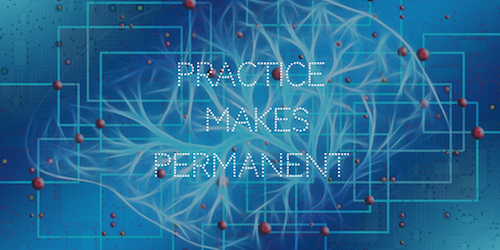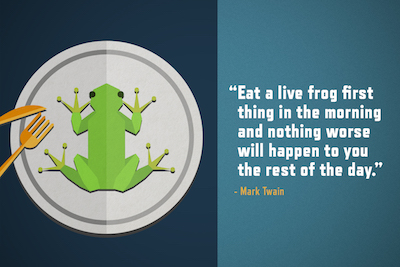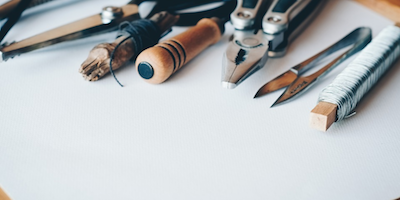Learning How to Learn
“Learning How to Learn”, this is by far one of the skills you should master. I recently took the Coursera course “Learning How to Learn: Powerful mental tools to help you master tough subjects” and I encourage you to do the same.
Well, I know almost everyone is busy as hell and won’t have the time to take the course. So, here I’ll summarize some of the key points made during the course:
Recall is better
Sometimes through highlighting or conceptual maps we get the illusion that we’re learning, while in fact the mere act of recalling produce better results for learning. This is backed up from research1.
What we recall becomes more recallable in the future. In a sense you are practicing what you are going to need to do later
They also pointed to one article where they offered this advice:
Immediately after every lecture, meeting, or any significant experience, take 30 seconds — no more, no less — to write down the most important points. If you always do just this, said his grandfather, and even if you only do this, with no other revision, you will be okay.
This advice is reinforcing a key idea of how our memory works. “Use it or lose it”. The more you use a neural circuit the stronger it gets.

Interleave your studies
Making a point to review for a test, for example, by skipping around through problems in the different chapters and materials can sometimes seem to make your learning more difficult. But in reality, it helps you learn more deeply.”
Test yourself often! Just don’t read your material and make some highlights.
To Really Learn, Quit Studying and Take a Test

Process builds walls
Studying everything one day before the exam won’t help you develop long term memories. You may pass your exam, but few days after you will forget your material.
Instead, you should get into the habit of practicing a bit every day. With practice you will increase the myelination within your neurons2 and as one professor once told us:
CREB, an important transcription factor needed for developing long term memories3, is only activated after several days of practice.
He was eager to measure our levels of CREB instead of making us to pass a test. But, luckily for us he abandoned the idea. Doing biopsies into our brains wouldn’t be very ethical I’d say.
Remember: “Strong walls shake, but never collapse”

Pomodoro technique
The Pomodoro technique is a widely known approach to working/studying in sprints of 25 min without distractions.
Before starting… “It is perfectly normal to start with a few negative feelings about beginning a learning session—even when it’s a subject you ordinarily like. It’s how you handle those feelings that matters.”
Also, this technique will help you to focus in the process and not in the final product. It’ll help you to avoid multitasking too:
a) Human beings cannot multitask.
b) The more you think you’re good at multitasking, the worse you’re at doing it.

Plan your quitting time
Planning your quitting time is critical! You need time also for exercising and sleep, activities which are essential for your memory. Also, during these relaxation periods new solutions to problems will pop up into your mind. So if you’re stuck with something: “Give your subconscious an assignment.”
They relate to these relaxation periods as your brain being in a “diffused” mode. In this mode your brain will create newer and broader connections. On the contrary, when you’re working in some task your brain will be in a “focused” mode using a narrower neural circuit.

Eat your frogs in the morning
It’s better to start with the most difficult/least pleasant task in the morning. Make also appointments to yourself to work on hard tasks every day (e.g. half an hour a day). Remember that willpower is a scarce resource, so use it wisely.

Avoid Einstellung
Einstellung refers to a person’s predisposition to solve a given problem in a specific manner even though better or more appropriate methods of solving the problem exist4.
Acknowledge this effect and be always eager to learn new things or new approaches to future problems!

Chunking
When you learn something new you create a “chunk”. Hence the term “chunking”. In the course they recommend not to use extra time once you create a chunk:
Once you’ve got the basic idea down during a session, continuing to hammer away at it during the same session doesn’t strengthen the kinds of long-term memory connections you want to have strengthened. Worse yet, focusing on one technique is a little like learning carpentry by only practicing with a hammer. After a while, you think you can fix anything by just bashing it.
Is better to practice a bit every day instead of having just one long session. Also the more chunks you create from different subjects the better:
The more fields of knowledge you cover, the greater your resources for improvisation.
The ability to combine chunks in new and original ways underlies a lot of historical innovation.

Handwrite your notes
It’s been suggested that handwriting your notes may be better than just transcribing notes using a laptop5. So dust off your pens and go back in time to take notes as you once had!

Memory Palace
This is an ancient technique for efficient recall of a set of items. Reading from Wikipedia:
“The items to be remembered in this mnemonic system are mentally associated with specific physical locations.The method relies on memorized spatial relationships to establish, order, and recollect memorial content”
Haven’t tried much myself this technique yet, but I sure will do in the future.

Bonus
Here are a couple of ideas taken from the course that may help you in your quest for learning:
“Law of Serendipity: Lady Luck favors the one who tries”. Lucky are for those who see the unexpected, listen intuition and try.
“Perseverance is a virtue of the less brilliant.” Santiago Ramón y Cajal
References
- Karpicke JD, Blunt JR. Retrieval Practice Produces More Learning than Elaborative Studying with Concept Mapping. Science. 2011;331(6018):772-775. doi:10.1126/science.1199327.
- Young K, O’Rourke M, Gasperini R. Adult myelination: wrapping up neuronal plasticity. Neural Regeneration Research. 2014;9(13):1261. doi:10.4103/1673-5374.137571.
- Silva AJ, Kogan JH, Frankland PW, Kida S. CREB AND MEMORY. Annual Review of Neuroscience. 1998;21(1):127-148. doi:10.1146/annurev.neuro.21.1.127.
- Luchins AS. Mechanization in problem solving: The effect of Einstellung. Psychological Monographs. 1942;54(6):i–95. doi:10.1037/h0093502.
- Mueller PA, Oppenheimer DM. The Pen Is Mightier Than the Keyboard. Psychological Science. 2014;25(6):1159-1168. doi:10.1177/0956797614524581.